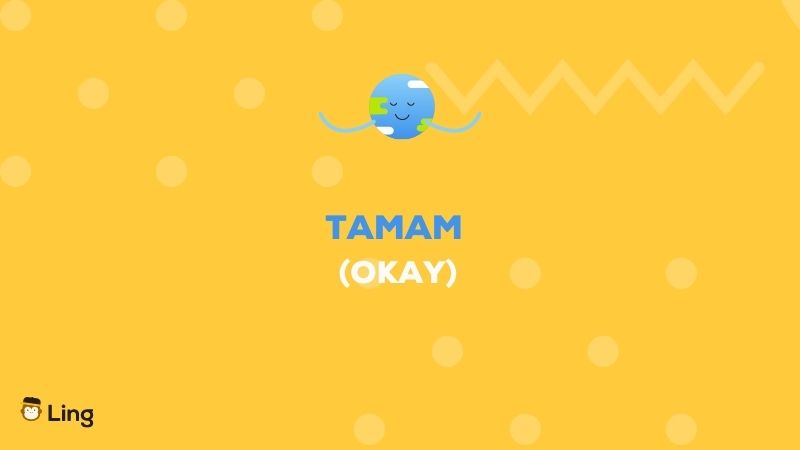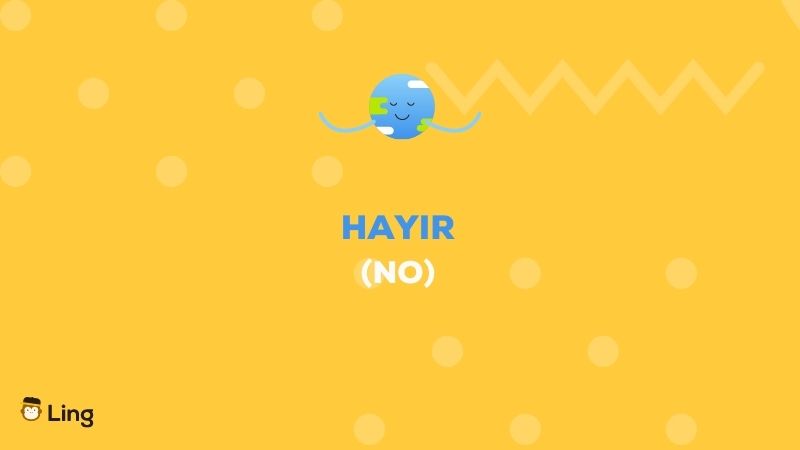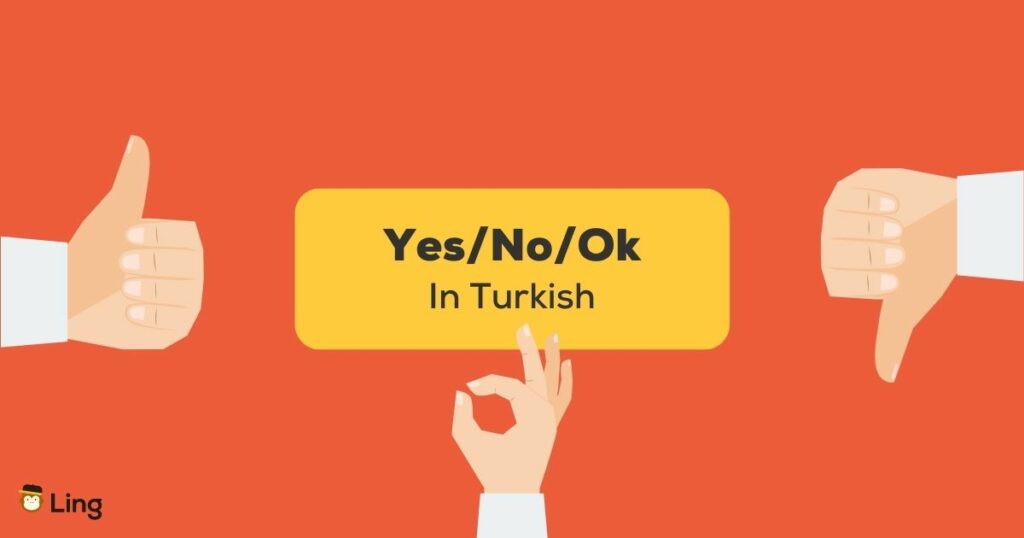What are the most commonly used words in daily life? Probably yes, no, and ok. The first rule to surviving in a foreign country is to know the basic vocabulary, starting from yes and no, in the local language.
So, if you want to have an easy time during your visit to Turkey, you should at least know how to say yes/no/ok in Turkish. Learn how to say yes when the waiter asks you if you would like to get one more glass of tea at the cafe or say no when the most hospitable host insists you eat more food at a Turkish home to which you’re invited.
If you’re planning to visit Turkey soon, the first words you should learn are yes/no/ok in Turkish at this point. You have no idea how much these three words come in handy. Let’s learn these super simple words with accompanying examples in today’s blog post!
Page Contents:
- How To Say Ok In Turkish?
- How To Say Yes In Turkish?
- How To Say No In Turkish?
- Other Basic Turkish Phrases You Need To Know
- Want To Learn Turkish With Ling App?

How To Say Yes/No/Ok In Turkish?
Okay is an overused word and is a loanword in many languages. And Turkish is no exception. Turkish people, especially youngsters, use the word okay daily, but let’s learn more Turkish ways to say it.
Tamam
Tamam is the Turkish equivalent of okay. You can use it when you want to accept or confirm something.
Example:
Olur
Olur and tamam can be used interchangeably. However, this word is mainly used when you accept an offer from someone.
Example:
Peki
You can use peki within the same context as olur when accepting an offer or idea. However, there is a distinction that you have to pay attention to. This one is a sign that you accept something unwillingly and show a kind of disappointment.
It has a similar meaning to the expressions “well” and “alright” in English.
Example:
How To Say Yes In Turkish?
We say yes hundreds of times during the day but be careful about what you are saying yes to, or you’ll turn into a Yes Man! If you’re tired of saying yes, try saying evet instead.
Evet
Evet means yes in Turkish. You can use it to affirm something or to give a positive short answer to a question.
Example:
Tabi ki
Tabi ki means sure in English. You can use it in the same way you use sure and, of course, in English.
Example:

How To Say No In Turkish?
There are a few different ways to say no in Turkish. Sometimes a simple gesture is also enough to say no. Here are the four different ways to say no in Turkish!
Hayır
Hayır is the correspondence of no in Turkish. You can use it to deny something or give a short negative answer to a question.
Example:
Olmaz
Olmaz is the opposite of olur in Turkish. You can use it when you don’t want to accept an offer or suggestion. It is a widely used word to say no in Turkish.
Example:
Yok
Yok actually means absence or nothing in Turkish, but it is also used to say no in casual talk. Check out the example below.
Example:
The “Tsk” Sound
Turkish people often make the “tsk” sound because it’s another way of saying no. So, you can just click your tongue to say no, but remember to make this sound only in casual talks with your friends, as it wouldn’t be appropriate in a formal situation.
Example:
Other Basic Turkish Phrases You Need To Know
- Hello – Merhaba
- Thanks – Teşekkürler
- You’re welcome – Rica ederim
- Excuse me – Pardon
- Good morning – Günaydın
- Good night – İyi geceler
- Goodbye – Hoşçakal
- See you – Görüşürüz
- I’m sorry – Özür dilerim
- Good – İyi
- Bad – Kötü
- Beautiful – Güzel
- Delicious – Lezzetli
- Help – Yardım/İmdat
- /
- How are you? – Nasılsın?
- I’m OK – İyiyim
Want To Learn Turkish With Ling App?
I hear you say evet! Then waste no more time; check out the Ling App, and start learning Turkish right now!

Ling is a language-learning app designed to help language learners learn and speak a new language comfortably. Ling App consists of different engaging activities, from writing and listening exercises to an AI chatbot to practice your pronunciation and speaking skills, and much more that cannot be written here. The Ling App offers you everything you want in a language learning app.
Trust me; you won’t regret it if you try Ling for FREE by downloading it from the App Store or Play Store.
Also, don’t forget to visit Ling’s Turkish blog for weekly articles about the Turkish language and culture!
Untill next time! Hoşçakalın!




































































One Response
Awesome. Thank you. Tesekkürler